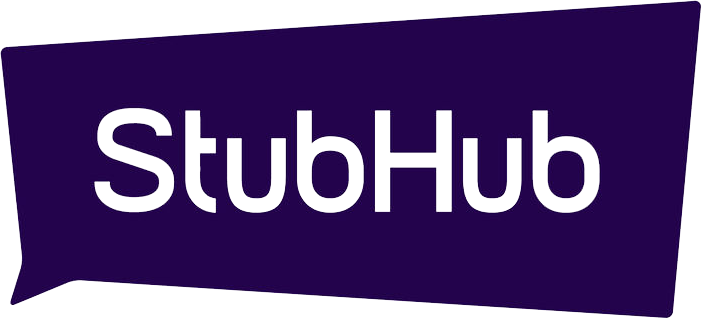Don’t miss Affiliate Summit West taking place January 12-14 2026 in Las Vegas! Connect directly with top industry voices tackling SEO and Google updates. And keep an eye out for the amazing SEO keynote speakers that will be announced shortly.....
If you rely on organic search visibility for your affiliate marketing business, you’ve probably noticed something different in your usual SEO tools and Google Search Console reports lately. There’s a new shift underway in how Google displays and shares search results, and it has direct implications for how affiliate marketers measure and optimize their SEO campaigns. Here’s a detailed breakdown of what’s changed, why it matters, and how affiliate marketers should adjust to stay ahead.
What Has Changed: The ‘&num=100’ Parameter Is Gone
For years, Google allowed users and by extension, SEO tools to view up to 100 search results per page by appending &num=100 to the search URL. This feature wasn’t just a convenience for power users; it was a key part of how the SEO industry tracked and analyzed search performance. Marketers could reliably scrape a large set of SERPs (search engine results pages) in one go, making keyword tracking, competitive research, and performance reporting much more efficient.
Starting in September 2025 however, Google quietly disabled this parameter. Now, even advanced users or bots trying to access deep sets of results are typically limited to just the first two pages of search results. Access to further results is blocked. As a result, nearly every rank tracking tool has been forced to re-engineer how it collects data if it can collect it at all.
Why Did Google Make This Change?
Google has not released an official statement explaining this move, but many in the SEO industry believe it’s intended to limit scraping by AI bots and other automated systems. By removing the ability to easily pull large numbers of results, Google is making it much harder for both AI models and third-party SEO tools to quickly and efficiently gather comprehensive search data.
This change also fits with Google’s broader philosophy: they’ve long signalled a desire for marketers to focus less on the pursuit of rank positions and more on user experience, engagement, and conversion outcomes. By restricting access to deeper ranking data, Google is nudging the industry away from “rank obsession” and toward more holistic measures of digital success.
Immediate Impact for Affiliate Marketers
1. Rank Tracking Tools Are Disrupted
Most rank trackers depended on the &num=100 parameter to fetch large datasets efficiently. Without it, every tool must now perform ten times as many queries to gather the same amount of data, which increases operating costs, slows down reporting, and may lead to higher subscription prices or reduced service levels.
Many leading tools including Ahrefs, SEMrush, and smaller platforms have already announced that they may now only reliably report on the first one or two pages of results. This is especially concerning for affiliate marketers targeting long-tail keywords or trying to monitor progress as they climb toward page one.
2. Google Search Console Data Is Now Skewed
If you’ve checked your Google Search Console reports recently, you may have noticed a sudden drop in impressions along with a rise in your average position. This isn’t necessarily a sign that your affiliate content is suddenly performing better or worse. Instead, it reflects the fact that impressions for results ranked further down (say, positions 30, 50, or 90) are no longer being recorded as frequently. This creates an artificial improvement in “average position” metrics because only higher-ranked pages remain in the dataset.
For affiliate marketers who depend on tracking dozens or hundreds of keywords across the entire SERP, this means less transparency and more volatility in your reporting. It’s now much easier to misinterpret a data swing as a real change in visibility or performance.
3. Scraping Is More Expensive and Less Robust
The end of the &num=100 hack means that scraping full SERPs requires more computing power and time. This favors larger SaaS platforms with deep resources and may crowd out niche or budget-friendly SEO tools. As a result, the cost of monitoring organic positions is likely to rise, and smaller affiliate marketers may find it harder to justify investment in traditional rank tracking.
4. AI Language Models Lose a Valuable Data Source
For those affiliate marketers experimenting with AI-driven analysis or using platforms that rely on AI models to interpret large SERP datasets, this change is a setback. The broader context that came from accessing 100 search results at once is no longer available, so both keyword analysis and content recommendations from AI systems may become less nuanced or complete.
Why This Matters: The Broader SEO and Affiliate Marketing Landscape
Google has been moving toward richer, more AI-driven search experiences for some time. With the rollout of the Search Generative Experience (SGE) and AI Overviews, search results are increasingly curated by algorithms that synthesize, summarize, and even answer queries directly often before users see traditional ten-blue-link listings.
For affiliate marketers, these changes reinforce a trend: it’s less about where your content ranks for a given keyword, and much more about whether your content is included in the new, AI-influenced search experiences. If a user’s question is answered directly in an AI Overview at the top of the SERP, it doesn’t matter if your site is ranked #9 or #29 visibility in that new AI-driven module is what counts.
What Should Affiliate Marketers Do Now?
In this evolving environment, it is essential for affiliate marketers to interpret performance data with greater care, recognizing that sudden drops in impressions or rises in average position are not always linked to actual changes in traffic or revenue. It is crucial to cross-reference ranking data with real user metrics, such as organic traffic and conversions, to gain a true picture of performance. Marketers should expand their focus beyond keyword rankings alone by closely monitoring visibility in featured snippets, knowledge panels, AI Overviews, and other search result features that increasingly capture user attention. Optimizing content for structured data and clear entity relationships becomes vital as search engines and AI platforms rely more on understanding context and authority. Remaining agile, staying informed about updates from tool providers and Google, and being prepared to adjust strategies as industry metrics and reporting standards evolve will help ensure ongoing success in this new search landscape.
The Bottom Line: Stay Informed And Always Stay Adaptable
The disappearance of the &num=100 parameter from Google’s search results is more than a technical tweak the immediate disruption may be inconvenient, but it’s also an invitation to rethink your approach to SEO from rank-chasing to building meaningful, discoverable, and AI-friendly content.
Now is the perfect time to review your reporting stack, update your measurement philosophy, and get proactive about the future of affiliate SEO. Stay tuned to industry updates, keep experimenting, and don’t let a single metric define your business success.
































































